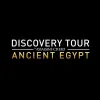Take a look inside 1 video | 6 images
Discovery Tour by Assassin's Creed: Ancient Egypt
Pros: Thanks to a multimillion-dollar budget, this game is polished and detailed in a way few -- if any -- educational games are.
Cons: The censoring of nude statues is both bizarre and historically inaccurate.
Bottom Line: This game is an absorbing experience that offers students a unique, living and breathing view of ancient Egyptian art, life, and culture.
With Discovery Tour, teachers are gonna face the same implementation challenges as with other commercial games. It's going to require a modern console or PC. It's also a bit pricey ($19.99 for the standalone PC version, or included with the purchase of Assassin's Creed Origins). If you can manage that and get ahold of at least one copy, Discovery Tour can be an exciting way to supplement a unit on ancient Egypt -- especially the period the game covers (Ptolemy XIII's rule). Teachers can project the game for the whole class and have individual students play through one of the tours for the benefit of the class (they take only 5-10 minutes each). Teachers can make sure that tours experienced during class align well with a specific day's or week's lesson. After the classwide tour, students can head to the library or the internet to find more information to post on a class website or to present. Of course, if students have a copy of the game at home, the sky's the limit. Students can explore the game at their own leisure, take notes, and then pursue research projects that culminate in a class presentation, portfolio, or essay. Using a tool like iMovie, students could assemble their own audiovisual tour through a collection of artifacts, maps, and sources they've found.
Teachers should note that while the world built for Assassin's Creed Origins was done in close conversation with historians and Egyptologists, liberties were taken based on missing information or the need to make a fun game environment. This, however, can be a boon to instruction. Explain this creative, interpretive process by the developers of the game to students, and then have them look for the ways that the game exaggerates or extrapolates from historical artifacts and information. Finding these divergences can motivate independent study and research.
Discovery Tour by Assassin's Creed: Ancient Egypt is an educational mode included with purchases of the commercial game Assassin's Creed Origins. It's also available as a separate purchase for PC. Discovery Tour allows players to freely explore the world of Assassin's Creed Origins -- a massive, 3D re-creation of ancient Egypt during the reign of Ptolemy XIII -- without any violence, questing, or storyline. Instead, players can explore every corner of the meticulously detailed (and populated) game world, walking the streets, riding boats and horses, or hopping along rooftops. Along the way, they'll stumble on optional in-game historical tours. These short (under 10-minute) tours are marked on the map at key points of interest and include voice-over narration, text, and images of artifacts blended with the player's exploration of a space. Topics range from an overview of important buildings to explanations of historical events to explorations of cultural traditions. Usefully, all the tours are included in an in-game menu and can be clicked on, warping the player instantly to the starting point of the tour.
The Assassin's Creed series has been revered for its beautiful, sprawling, and detailed re-creations of historical cities and regions. To get this right, the series' developer, Ubisoft, has made a point of working with historians and archaeologists to balance historical accuracy (based on whatever information exists) and fun gameplay. All along people have speculated these worlds could make great educational tools. With Discovery Tour, they've finally delivered on this possibility. Now rid of all the trappings of the game (killing, questing, and the storyline), players are free to explore and appreciate the truly stunning work that went into re-creating ancient Egypt. This free exploration provides students with a fuller picture of ancient Egyptian culture than staring at images of ruins in textbooks. Beyond exploring the game world, the tours themselves truly deepen students' understanding and offer the most school-friendly learning experiences. They're nice and short, focused on highly engaging topics, and include historian and Egyptologist-vetted textual write-ups and images of artifacts. These tours effectively turn the living, breathing digital Egypt students explore into a museum-like experience.
There are some issues, however. Students will need to understand that what they're seeing isn't 100 percent accurate, but an extrapolation based on surviving evidence. It'd be nice if Discovery Tour were a bit more explicit about this. Teachers can make this a learning opportunity by comparing the limited physical evidence presented in the tours to how it was interpreted in the game. Most disappointing, however, is that the in-game statues anachronistically have seashells over their breasts and genitals. (Thankfully any photographs of statues included in the tours are uncensored.) It seems like this was done to preemptively stave off concerns from teachers or parents about nudity, but it undermines a fundamental learning experience about Egyptian, Roman, and Grecian culture and art. Once again, this would be worth discussing with students (and battling through the giggles!) to dig into changing social norms and the function of the nude body in art.
















